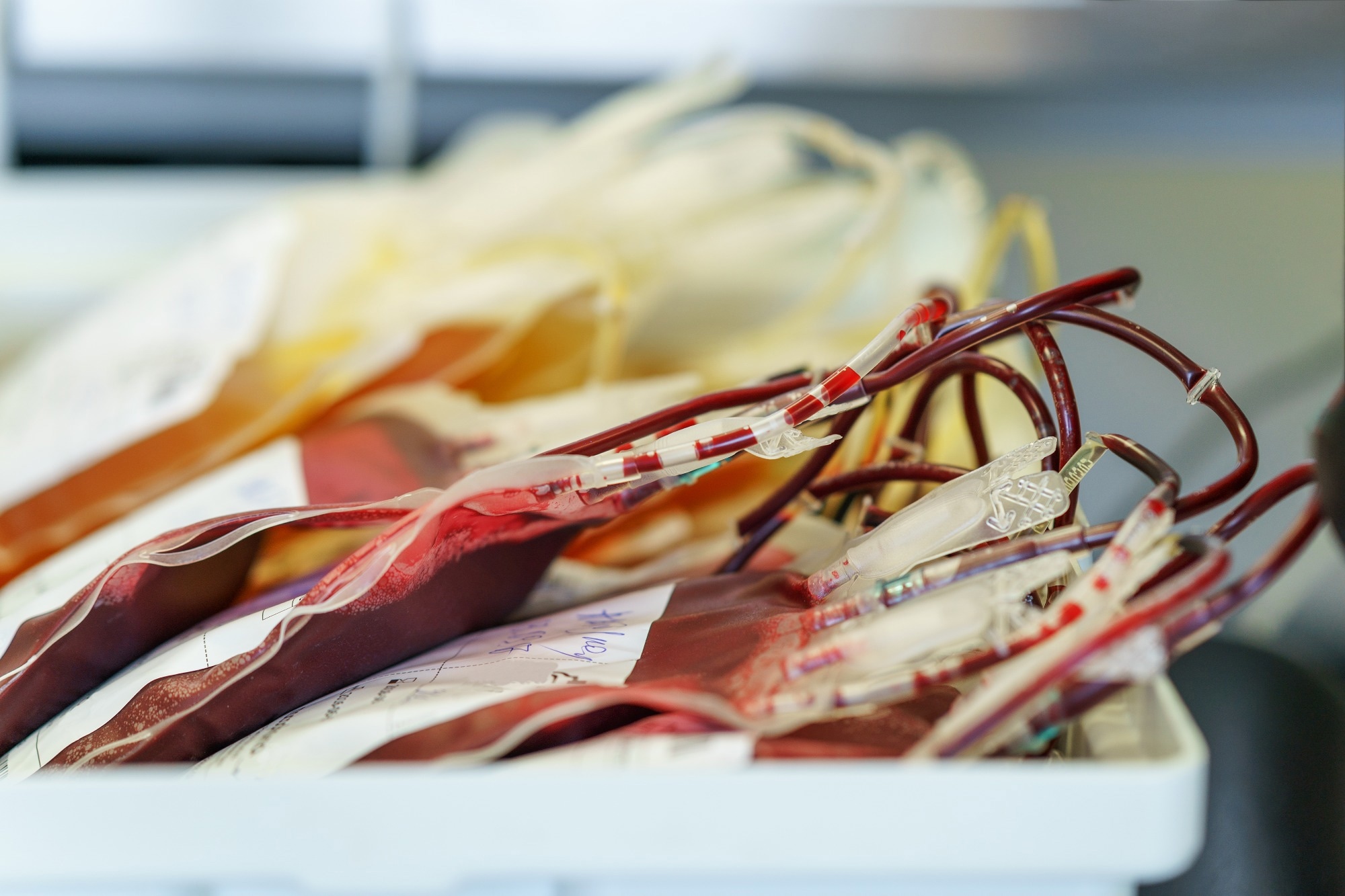Understanding the Role of Convalescent Plasma Therapy in Treating Hospitalized COVID-19 Patients
Key Highlights :

The COVID-19 pandemic has caused immense disruption across the world, with over 769 million confirmed cases and almost seven million deaths. As the virus continues to mutate, the development of effective therapies has become increasingly important. Convalescent plasma therapy is a procedure that uses plasma derived from blood of donors who have recovered from a disease to treat individuals with defective immune systems. To date, plasma-derived antibodies have been used to successfully treat influenza, Lassa virus, Ebola virus, and other pathogens. In 2020, the United States Food and Drug Administration (FDA) granted emergency use authorization for the use of convalescent plasma (CCP) in treating severe COVID-19 cases.
In a recent study posted to the medRxiv preprint server, researchers report that CCP is most effective in treating hospitalized coronavirus disease 2019 (COVID-19) patients with poor pre-existing anti-severe acute respiratory syndrome coronavirus 2 (SARS-CoV-2) antibody function. The study included 79 patients hospitalized at the University of Pennsylvania between May 2020 and January 2021 due to severe COVID-19-induced pneumonia. Forty individuals comprised the case-cohort that received both CCP and standard care, whereas the remaining 39 patients only received standard care.
To understand the role of CCP in the evolution of patients’ immune response, the researchers utilized system serology, a plethora of high throughput experimental techniques. These techniques included the use of a multiplexed Luminex bead array for the detection and quantification of antigens and antigen-specific humoral responses between study cohorts. Ab-directed flow cytometry functional assays were used to quantify antibody-dependent neutrophil phagocytosis (ADNP), antibody-dependent cellular phagocytosis (ADCP), and antibody-dependent complement deposition (ADCD). Four parameter logistic regression models were used to estimate the Clinical Severity Score (CSC), a measure of the CCP efficacy.
The results of the study showed that CCP treatment leads to an immunodominance shift from a spike (S)-targeted humoral response to a nucleocapsid (N) protein-targeted approach. This shift leads to blunted inflammation and a decreased S response. Furthermore, CCP treatment facilitates the rapid clearing of N-proteins, which are responsible for lung damage in severe COVID-19. Notably, the anti-inflammatory effects of CCP are long-lasting and persist for at least two months following treatment. CSC scores significantly improved for participants receiving CCP treatments as compared to those receiving only standard care with median scores of seven and ten, respectively. CCP treatment significantly reduced mortality and morbidity as compared to standard care alone.
The findings of this study suggest that the primary benefits of CCP may be due to the passive shift in immunodominance through antibody functional activity, with the direct neutralizing properties of CCP antibodies a secondary outcome. These results are of critical importance in light of the emergence of Omicron and other SARS-CoV-2 variants that have rendered most conventional monoclonal antibody therapeutics ineffective. Polyclonal antibodies, including CCP, are less likely to be affected by novel strains.
Overall, the study provides valuable insight into the role of CCP in treating hospitalized COVID-19 patients. It suggests that CCP may be an effective therapy for reducing mortality and morbidity in COVID-19 patients, particularly those with poor pre-existing anti-SARS-CoV-2 antibody function. Moreover, the findings of the study suggest that CCP may be a viable option for treating novel strains of the virus that are resistant to conventional vaccines.
